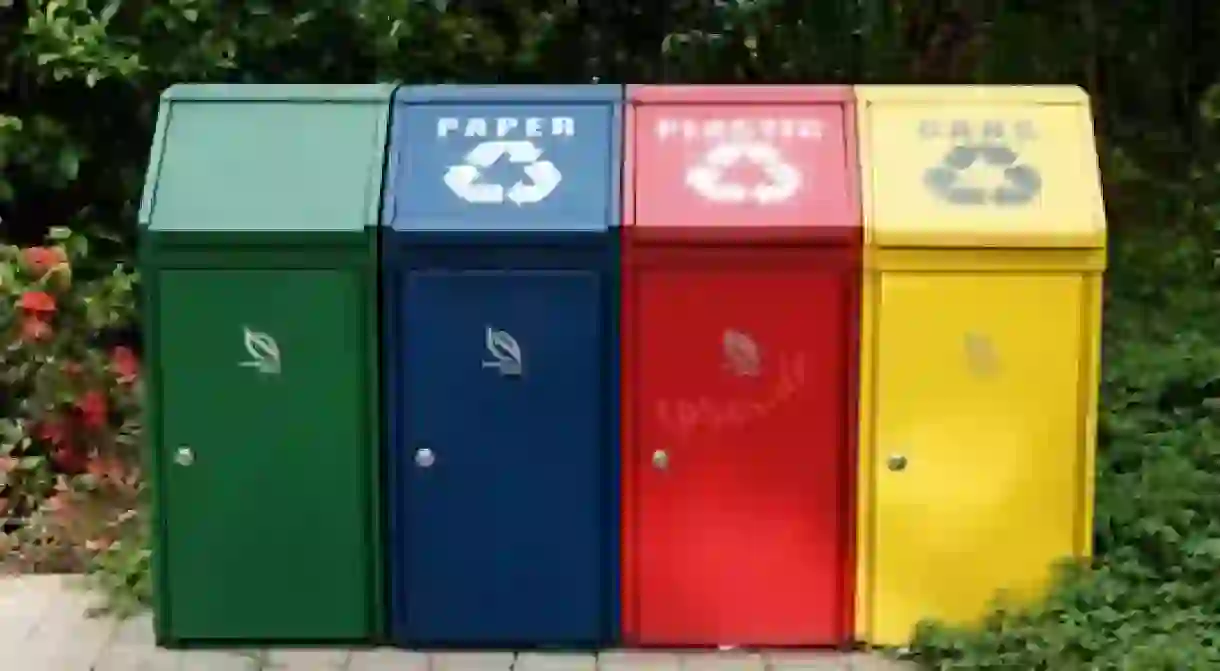10 Rewards For New York City Environmentalism

From acquiring pocket change to helping mitigate the effects of climate change, the benefits of recycling vary in scale and scope. While some results are more tangible than others, the positive outcomes of recycling, even those hard to see, can resound into the future. Below are 10 rewards for recycling in New York City

Maintain a Healthy Public Environment
Waste that is not recycled is oftentimes disposed of in landfills. Some of this waste is considered ‘hazardous waste’ because of its toxic, ignitable, reactive or corrosive elements. In poorly maintained landfill sites, these hazardous materials can seep into the air, soil and groundwater, affecting our bodies, food and water supply. By recycling, individuals can help alleviate the public health risks associated with landfills.

Job Creation
According to the Environmental Protection Agency (EPA), 10,000 tons of recycled solid waste can create ten jobs, while 10,000 tons of landfill-destined waste can create just one. Such a statistic demonstrates how being an active recycler can help fuel the creation of more jobs. By laying the foundation for diversified green market careers, recyclers can also be tied to expansion of sustainable infrastructures and urban systems. As such, recycling can contribute to the development of a productive green economy.

Bottle Bill
The Returnable Container Act, also commonly known as the Bottle Bill, allows New York consumers to receive five cents back upon returning empty containers to the store or vendor that sold them. This is considered a cash back perk because once a customer purchases a metal, glass or plastic container under one gallon, they are technically making a ‘deposit.’ As such, by returning a container back to its place of purchase, you are not only recycling but also getting a capital return.

Cosmetic Perks
Some companies actually reward their customers for recycling. For example, for every six primary cosmetic packaging containers a buyer returns to a MAC counter or online store, the Back to MAC Program rewards one lipstick back. The bonuses do not stop at product giveaways or MAC. From LUSH to Nordstrom’s, the incentives to recycle also take the form of cash and store credit. By ensuring a tangible reward, these companies demonstrate how recycling can be a win-win situation for consumer and business alike.

Turn the Clock Back on Climate Change
There is a connection between climate change and recycling that is important to note in an increasingly warming world. By recycling, an individual can prevent the emission of greenhouse gases (GHG) associated with manufacturing a product from its raw material and manage the waste that product produces upon entering a landfill.

Make a Direct Impact on Resource Extraction
Recycled components already processed and refined require far less energy and resources to be manufactured into a new product than those derived from raw material. In other terms, recycling is resource efficient. For example, a ton of recycled office paper conserves nine barrels of oil, 7,000 gallons of water, 3.3 yards of landfill space and prevents 60 pounds of air pollutants from being released into the atmosphere. Utilizing recycled aluminum uses 95 percent less energy than material used from virgin extraction. Just one recycled glass bottle conserves energy equivalent to lighting a 100-watt light bulb for four hours. These figures demonstrate that by recycling, a consumer ensures that far more than just the material recycled is conserved.

Help Conserve Land
From logging and mining to oil extraction and large-scale farming, the basic components that are or make up the items people consume on a daily basis at one point came from the land. By recycling, consumers not only conserve raw resources and energy but also take part in decreasing the demand for a product and, thus, land conversion. As a result, recyclers mitigate the demand that has the power to turn a forest into timberland, a mountaintop into a mine and a river into a dam.

Exercise Your Green Thumb
According to an Issue Paper released by the Natural Resource Defense Council (NRDC), farm-to-table food uses a whopping 50 percent of U.S land and 80 percent of consumed freshwater. Even more poignant is that out of 430 billion pounds of food produced in the U.S., about 30 percent goes to waste. In addition, when food waste enters a landfill, it emits the greenhouse gas methane. By recycling food waste through composting, consumers can decrease their carbon footprint and generate nutrient rich soil. Check out the NYC Compost Project for more information on where to drop off food waste or how to compost yourself.

Personal Health
Not all products can be recycled. By taking part in a culture of recycling, consumers can limit their exposure to the toxic elements present in products such as paints, household cleaners and batteries by opting into the purchase of safer alternatives that can be easily recycled. For example, oil-based paints contain volatile organic compounds (VOCs) that can instigate the development of symptoms such as dizziness, headaches and respiratory problems. Latex-based paints are a healthier alternative, and in addition to their plastic and metal containers, they can also be successfully recycled.

Ripple Effect
Good habits are sometimes contagious. One individual’s influence can make a powerful difference. By recycling, you are already taking the steps needed to make a domino effect of positive change. For more information on personal or household impact, check out The Nature Conservancy’s carbon footprint calculator.













